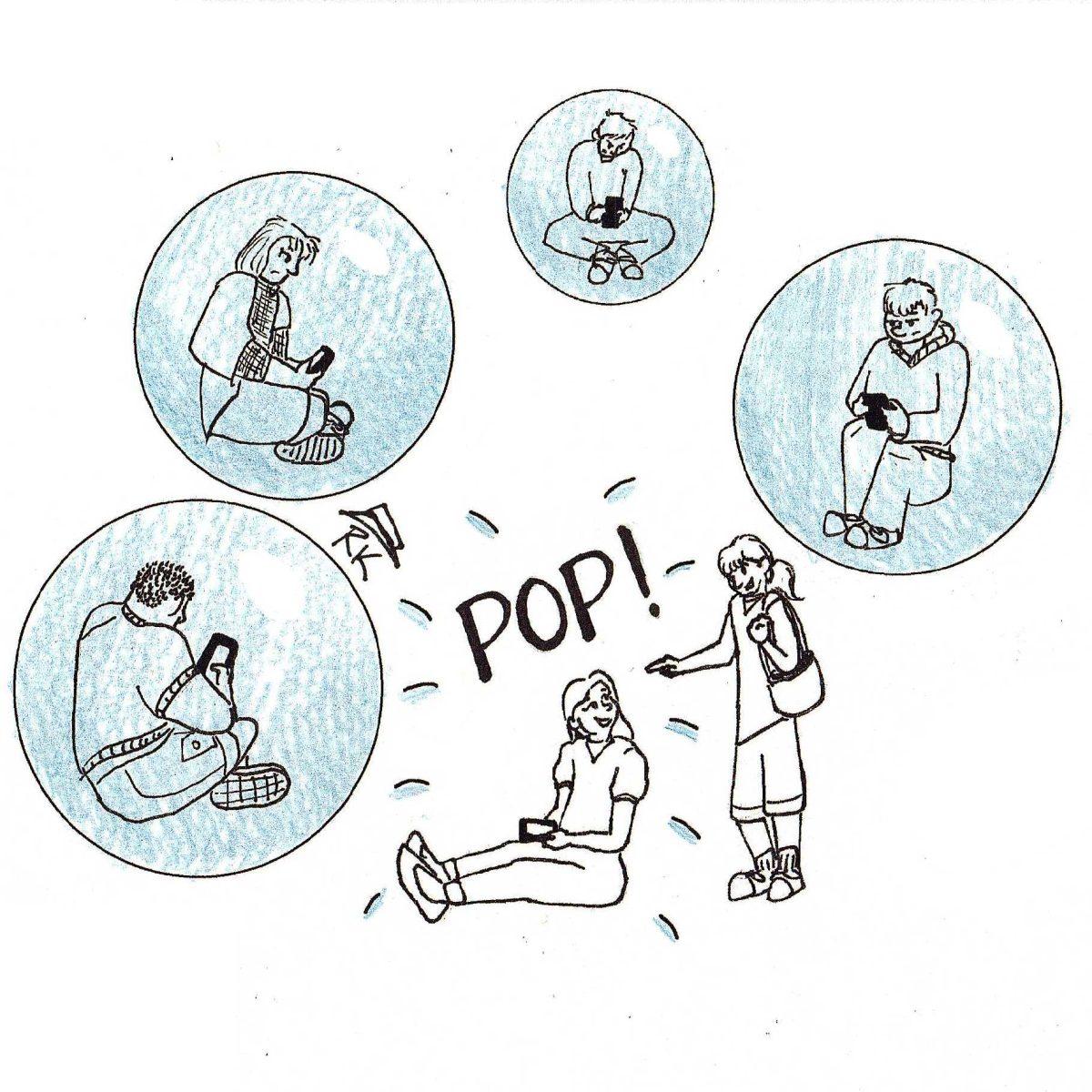As I walk through the Quad on any given day, I notice the vast number of students with their eyes glued to their cellphone screens.
We’ve all walked down a narrow sidewalk behind an oblivious, slow texter. I’m guilty too. Once, on my way to class, I was texting and nearly walked into a stop sign.
Because of our addiction to technology, we fail to be fully present in our environment and miss out on valuable opportunities to interact with those physically around us.
Studies show that cellphone usage diverts our attention from our surroundings, and the results can be detrimental. According to Distracting.gov, an estimated 421,000 people were injured in motor vehicle crashes involving a distracted driver in 2012.
If our phones distract us from focusing on the road, they also distract us from fully engaging with the people around us.
While texting and other forms of technological communication are useful, they are no substitute for face-to-face communication.
UCLA professor Albert Mehrabian concluded that, regarding feelings and attitudes, only 7 percent of communication is through the actual content of the message, while the rest is through body language and vocal tone, pitch and emphasis.
Too often we trade in the real world around us, in which we can fully communicate, for the technological world, in which we are only able to partially express our true selves.
Talking on the phone while driving, Facebooking while listening to a lecture, texting while walking: We call these multitasking.
Contrary to common belief, the brain cannot complete multiple tasks simultaneously. According to Karen Bradley in an article published by the National Association of Independent Schools, the brain instead “switches gears, which takes time, reduces accuracy and inhibits creative thought.”
We need to stop trying to live in multiple worlds at the same time, because the fact is we can’t.
Multitasking in social situations, such as texting while someone is talking, may be irritating or hurtful, because it indicates the listener does not value the speaker’s thoughts enough to give his or her full attention.
We’ve all heard the quote, “Wherever you are, be fully there.” Imagine how different our lives would be if we truly applied it.
We must not let technology complicate life and take us away from the present moment.
Our classmates all have their own unique stories, interests and goals, but we may never even know their names, because instead of engaging in conversations before class, we put up walls — our cell phones.
What if we took down our walls, just for a little while, and decided to interact with those physically around us?
Perhaps it has been a long time since the person sitting next to you has been encouraged. We have many opportunities to positively affect those around us, even if it’s just a smile or “hello.”
I’m not saying we should completely unplug from technology. It definitely has its positive aspects. Who knows where I would be without Google Maps. There’s no telling.
There’s nothing wrong with using technology, but it becomes a curse when we become so attached to our phones that we cannot engage in the physical world around us. The people around us deserve our full attention.
Technology today has the power to connect us with people across the world and also the power to disconnect us with those in the same room.
We should limit our cell phone use in social settings, so we can give our full attention and respect to those physically around us — our family, friends, professors and even those we don’t yet know.
Christine Guttery is a 20-year-old English junior from Baton Rouge.
Opinion: Technology closes us off from true interaction
November 19, 2013
Cell Phones





